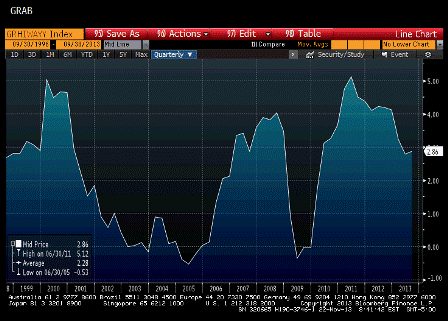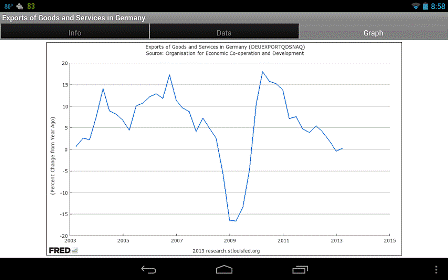Just noticed this. The question is whether it was proactive/desired and ongoing or one time/forced due to sequester and FICA hike income reductions.
“Household debt jumped US$127 billion in the third quarter, the biggest increase since the first quarter of 2008. The rise was across the board as Americans went into greater debt to buy everything from houses to cars to schooling. Household debt is now growing faster than both gross domestic product and disposable income, returning to the pattern that drove both economic growth and serial bubbles in the past decade.”
(Thanks Edward Harrison)


